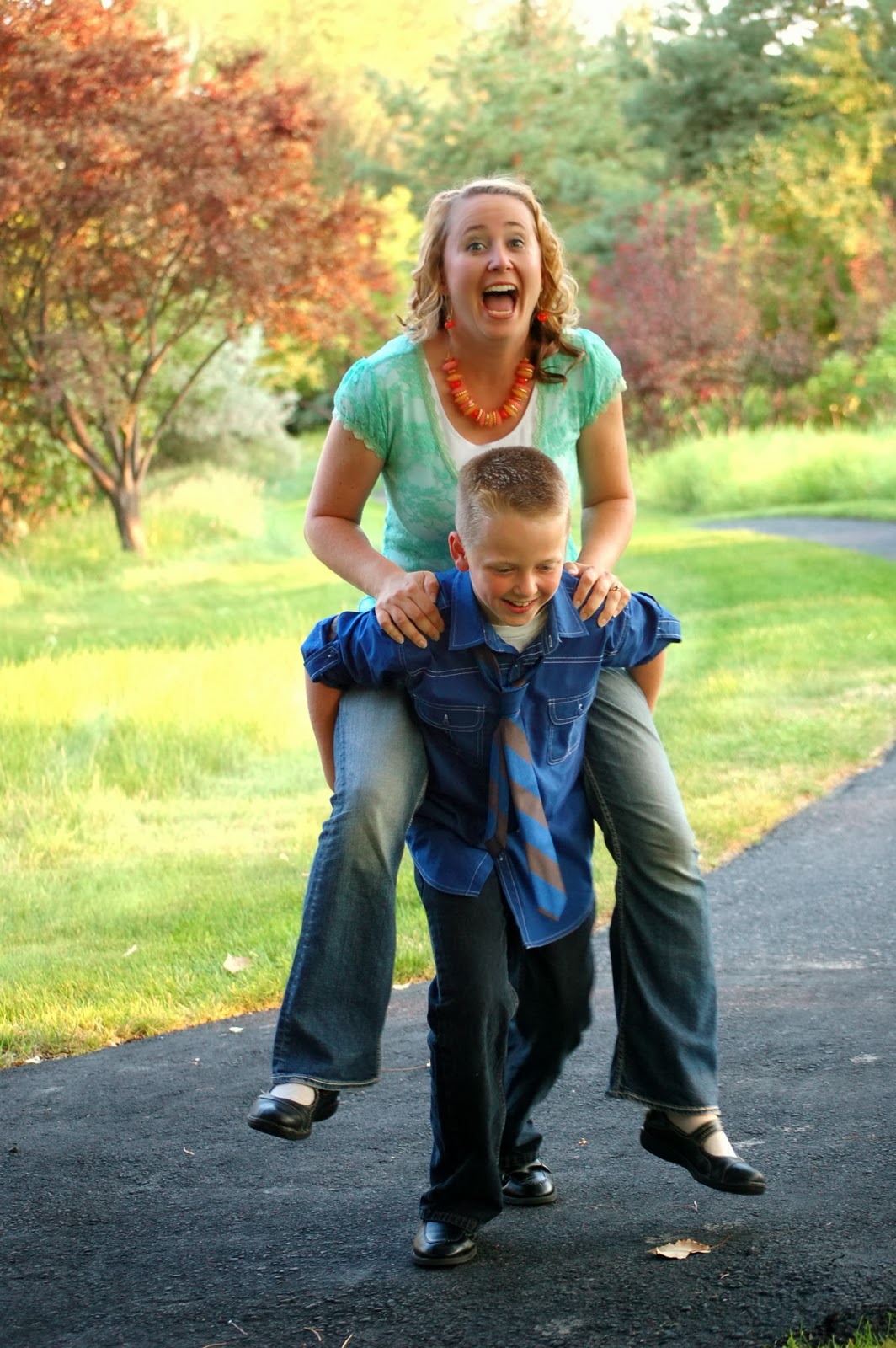In the journey of life, the relationship between a kid and his mom is one of the most profound and impactful connections one can experience. From the first moments of life, this bond shapes a child's emotional, social, and psychological development. It serves as the foundation for understanding love, trust, and security. This unique relationship evolves over time, adapting to the stages of growth and challenges faced by both parties. The role of a mother in shaping her child's life is unparalleled, making this bond one that deserves exploration and appreciation.
This article delves into the intricate dynamics of the relationship between a kid and his mom, highlighting its importance, challenges, and the ways to strengthen it. We will explore how this relationship impacts a child's development and provide practical advice for nurturing this bond throughout different life stages.
Whether you are a parent seeking guidance or an individual interested in understanding the significance of this relationship, this article will offer valuable insights. Let's embark on a journey to understand the depth of the connection between a kid and his mom and how it influences their lives.
Read also:Alexander Bauer A Comprehensive Exploration Of His Life Career And Achievements
Table of Contents
- Biography: Understanding the Kid and His Mom
- The Importance of the Kid and His Mom Relationship
- Stages of Development in the Relationship
- Effective Communication Between Kid and Mom
- Common Challenges in the Relationship
- Practical Solutions to Overcome Challenges
- Activities to Strengthen the Bond
- The Impact on Mental Health
- Cultural Differences in Parenting Styles
- The Future of the Kid and His Mom Relationship
Biography: Understanding the Kid and His Mom
Who They Are
The relationship between a kid and his mom is deeply rooted in mutual respect and understanding. To comprehend this bond better, let's explore who they are as individuals. A mother is not just a caregiver but a mentor, protector, and guide. A kid, on the other hand, represents potential, curiosity, and growth. Together, they form a partnership that evolves over time.
| Name | Age | Role | Key Responsibilities |
|---|---|---|---|
| John Doe (Kid) | 8 years old | Child | Learning, growing, and seeking guidance |
| Jane Doe (Mom) | 35 years old | Mother | Caring, teaching, and nurturing |
The Importance of the Kid and His Mom Relationship
The bond between a kid and his mom is crucial for emotional and psychological well-being. Research shows that children with strong maternal relationships exhibit higher levels of self-esteem and resilience. This connection provides a sense of security and belonging, which is essential for healthy development.
Key Benefits
- Enhanced emotional intelligence
- Improved communication skills
- Stronger coping mechanisms
- Better academic performance
A study published in the Journal of Child Psychology and Psychiatry highlights that children with nurturing maternal relationships are less likely to experience anxiety and depression.
Stages of Development in the Relationship
The relationship between a kid and his mom evolves through various stages of life. Each stage brings unique challenges and opportunities for growth.
Infancy
During infancy, the bond is primarily built through touch, sound, and sight. Mothers often use soothing words and gestures to create a sense of security for their babies.
Early Childhood
As the child grows, the relationship shifts to include more verbal communication and shared activities. This stage is critical for developing trust and independence.
Read also:Almost Famous Cast A Deep Dive Into The Iconic Films Stellar Ensemble
Adolescence
Adolescence introduces new dynamics as the child seeks autonomy while still needing guidance. Open communication becomes vital during this phase.
Effective Communication Between Kid and Mom
Communication is the cornerstone of any strong relationship. For a kid and his mom, effective communication fosters understanding and trust.
Strategies for Better Communication
- Active listening: Pay attention to what your child is saying without interrupting.
- Empathy: Understand and validate your child's emotions and perspectives.
- Positive reinforcement: Encourage good behavior through praise and rewards.
According to the American Psychological Association, consistent and open communication between parents and children reduces behavioral issues and strengthens family bonds.
Common Challenges in the Relationship
Despite its significance, the relationship between a kid and his mom is not without challenges. Misunderstandings, generational gaps, and external pressures can strain this bond.
Identifying Challenges
- Conflict over expectations
- Difficulty in expressing emotions
- Impact of external influences such as peers and media
It is essential to address these challenges proactively to maintain a healthy relationship.
Practical Solutions to Overcome Challenges
Solving challenges in the kid and his mom relationship requires effort and commitment from both parties. Here are some practical solutions:
Steps to Resolve Issues
- Encourage open dialogue to address concerns
- Set realistic expectations and boundaries
- Seek professional help if necessary
Family therapy and counseling can be valuable resources for resolving conflicts and strengthening bonds.
Activities to Strengthen the Bond
Engaging in meaningful activities together can enhance the relationship between a kid and his mom. These activities provide opportunities for bonding and creating lasting memories.
Recommended Activities
- Family game nights
- Cooking or baking together
- Outdoor adventures like hiking or camping
Research from the National Institute of Child Health and Human Development suggests that shared activities promote stronger family connections and improve overall well-being.
The Impact on Mental Health
The relationship between a kid and his mom significantly influences mental health. A supportive maternal bond can protect against mental health issues such as anxiety and depression.
Mental Health Benefits
- Increased emotional stability
- Improved problem-solving skills
- Enhanced self-confidence
A study conducted by the World Health Organization emphasizes the importance of positive parenting in promoting mental health among children.
Cultural Differences in Parenting Styles
Cultural backgrounds play a significant role in shaping parenting styles and the relationship between a kid and his mom. Understanding these differences can provide valuable insights into diverse family dynamics.
Examples of Cultural Variations
- Collectivist cultures prioritize family unity and group harmony.
- Individualist cultures encourage independence and self-expression.
- Traditional cultures often emphasize respect for elders and adherence to customs.
Recognizing and respecting cultural differences can enhance cross-cultural understanding and appreciation.
The Future of the Kid and His Mom Relationship
As society continues to evolve, the relationship between a kid and his mom will adapt to new challenges and opportunities. Embracing change while maintaining core values will ensure the longevity of this bond.
Preparing for the Future
- Stay informed about emerging trends in parenting
- Foster a culture of continuous learning and growth
- Embrace technology as a tool for communication and education
The future of the kid and his mom relationship lies in their ability to navigate change while preserving the essence of their connection.
Kesimpulan
The relationship between a kid and his mom is a powerful force that shapes lives and influences generations. Through understanding, communication, and mutual respect, this bond can thrive despite challenges. By implementing the strategies and activities discussed in this article, you can strengthen your connection and create a lasting legacy of love and support.
We invite you to share your thoughts and experiences in the comments section below. Your feedback is valuable in helping others understand the significance of this relationship. Additionally, feel free to explore other articles on our site for more insights into family dynamics and personal growth.


